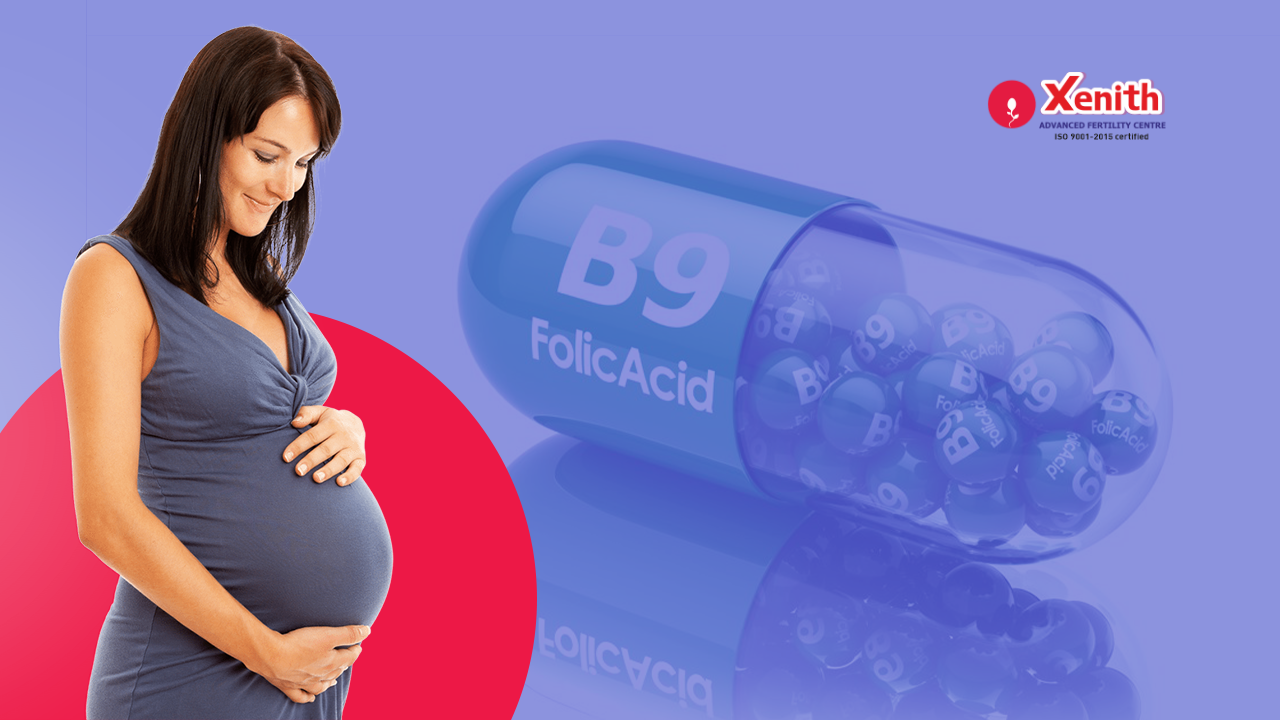
Folic acid is produced synthetically to mimic a naturally occurring B9 vitamin called folate. It is an important component of a holistic nutrition for pregnancy program. Folate helps the body to make red blood cells and is also needed for healthy cell growth. Folic acid along with Vitamin B12Vitamin B12 and vitamin C help the body with the breaking down, using, and creation of new proteins. It also helps in DNA production which is the building block and carries the genetic information of your body.
Because our body cannot make folate, we need to get it from our diet. It is found in leafy vegetables like spinach, beets, beans, certain fruits like oranges, lemons, bananas and melons, nuts, eggs, and in certain animal organs like the liver and kidney. The World Health Organization (WHO) recommends fortification of foods like flour with folic acid.
Why is folic acid important for pregnancy?
To prevent anemia: Anemia is a condition where you don’t have enough healthy red blood cells to carry oxygen from the lungs to the rest of the body and folate aids in red blood cell production. Pregnant women need to produce excess blood to provide nutrients for the baby. Being anemic can cause the baby to be born with reduced birth weight or born premature.
For proper fetus development: The neural tube of the embryo develops into the brain and the spinal cord and for it to grow and develop properly, the proper amount of folic acid is needed. Research shows that taking a daily folic acid supplement as recommended by your fertility doctor can support healthy growth of the baby. It is important to have proper folate levels in your body in the early stages after conception when the brain and spinal cord are developing and one should start taking folic acid supplements as early as 3 months before conception.
Promotes full-term pregnancy: A full-term birth is considered to be 40 weeks and preterm or premature birth is if the baby is born in less than 37 weeks.
Folic acid is water-soluble. It is excreted in the urine if it’s in excess and not used. So, it needs to be taken daily. It is also recommended to take folic acid while you are breastfeeding the baby after you have already delivered the baby. Talk to your doctor about any questions you might have about this and how much to take in your particular circumstances. The specialists at Xenith Advanced Health Center are very knowledgeable in this or any other fertility or pregnancy-related questions.




